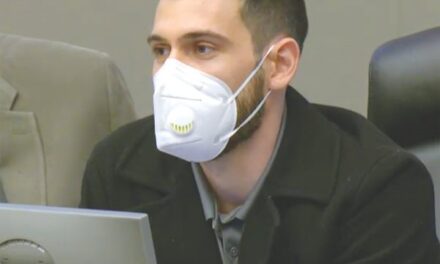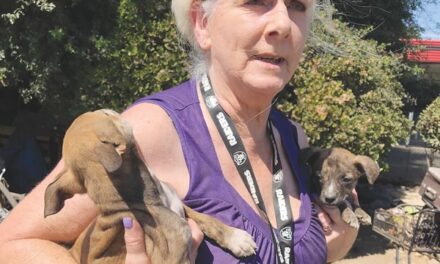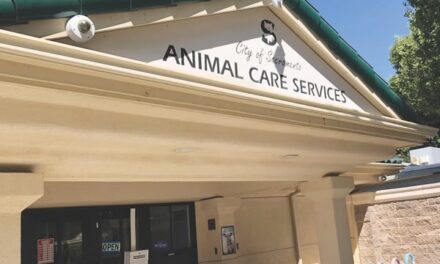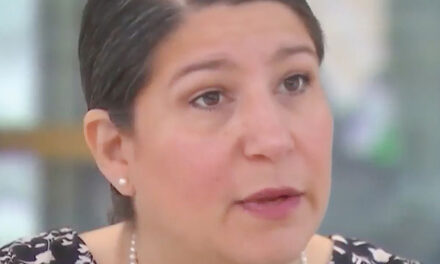Worse Than Imagined
Community ‘workshop’ leaves Front Street animals with little hope
By Cathryn Rakich
May 2023
The meeting was touted as a Community Participation Workshop. It was anything but.
Its purpose was to give the public an opportunity to share comments, concerns and suggestions with the Animal Care Citizens Advisory Committee, a seven-member panel that makes recommendations to the City Council regarding the Front Street Animal Shelter.
Community members who turned out to have an open discussion about the city shelter were shut down after two minutes of comments—four minutes if the committee had no follow-up.
Questions from the public went unanswered. Dialogue was zero.
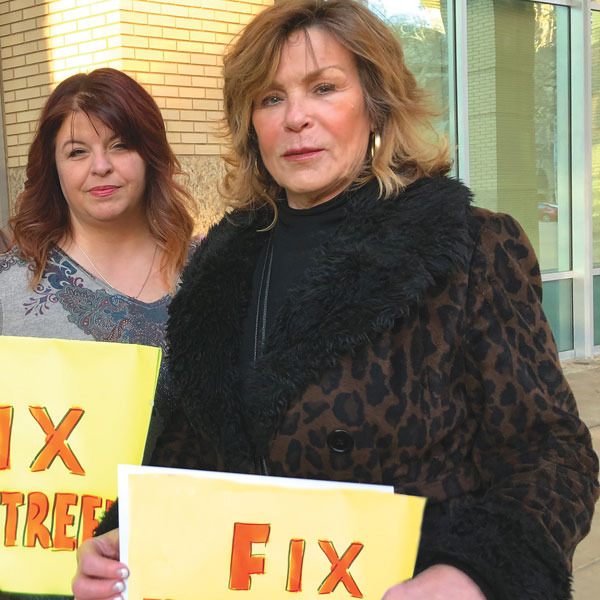
“Although we knew they would never open themselves up to a truly honest, open, transparent forum, it was even worse than imagined,” says local animal advocate Julie Virga. “That this was in any way a fair, open, two-sided question-and-answer period is a laughable notion.”
Virga has voiced concerns to the committee and city officials about Front Street Animal Shelter for the past three years. She helped launch a Fix Front Street Facebook page to bring attention to problems plaguing the city’s shelter since Phillip Zimmerman was named animal services manager in 2019.
Concerns include the shelter’s policy to turn away healthy stray animals, failure to make spay and neuter a priority, euthanizing animals for space, little to no emphasis to help pets with behavior issues or moving them to rescue groups, and hundreds of animals in foster care falling through the cracks.
There are typically as many as 300 dogs in foster care and as few as 20 available for adoption. “There is clearly something wrong with those numbers,” Virga told the committee. “Why aren’t they making sure those animals get adopted so more animals can get out of the shelter and go to homes?”
Virga asked the committee if they knew how many animals had been killed so far in 2023. No one responded.
“There were 89 dogs that have died as of today, and 59 cats,” she said. By mid-April, 173 dogs and 82 cats were killed.
“Are we to believe that none of those animals could be treatable, either medically or behaviorally? Do we not believe there could be more done to save those animals’ lives?”
Elyse Mize with Fix Front Street emphasized the number of animals killed for space and behavior. “Adoptable dogs, like Lady,” she said, holding up her cell phone to show a photo. “She was adoptable up and until they killed her.
“Hopelessness. That is what we have right now,” Mize said. “Hopelessness.”
Zimmerman blames the killing of adoptable animals on lack of capacity. He blames lack of capacity on more animals coming in than going out. He blames fewer adoptions on the nationwide veterinarian shortage—animals cannot be adopted until they are spayed or neutered.
Fix Front Street says the increased number of strays is due to unaltered pets being put back into the community or denied access to the shelter.
“We’ve offered spay and neuter solutions,” Virga said, including a low-cost surgical team, secured by Fix Front Street, willing to work within the shelter’s resources and budget.
Lynette Hall, the city’s community engagement manager, facilitated the meeting. Zimmerman sat centerstage with advisory committee members. He responded with well-rehearsed answers to Hall’s questions—questions he’s been asked before by the public, media and Fix Front Street. Hall made no effort to follow up on Zimmerman’s responses. The public was not allowed to engage.
“The sole purpose of this ‘workshop’ was to give director Zimmerman this uninterrupted forum,” Virga says. “It was not to elicit the concerns of citizens.”
Local animal advocate Maria Calderon performs “trap, neuter, return” of stray community cats. She works with the county’s Bradshaw Animal Shelter and the Sacramento SPCA. “You can always find help with those shelters,” she told the committee. “But Front Street has lost our trust within the TNR community.”
Front Street turns away healthy, friendly stray cats and kittens—most, if not all, are not spayed or neutered. Zimmerman calls the shelter a “horrible place” where cats can “shut down” and get upper respiratory infections.
Unaltered cats can also reproduce at an alarming rate.
“Are they supposed to be out in the public where coyotes might kill them, they could get run over by cars?” Calderon asked the committee. “If you’re taking care of the animals, if you’re giving them the proper things they need, then respiratory infections and all the things that are a danger in the shelter are not that big of an issue.”
Estella Drake has volunteered with Front Street and other shelters for more than 11 years. She showed the advisory committee a manual she assembled with resources to help the Latino community in South Sacramento, recalling days when former Front Street Manager Gina Knepp ran the shelter.
“I’ve connected them to get vouchers because before I used to be able to get them from Gina and help the community,” she told the committee. Drake has purchased humane traps “because Front Street is no longer lending them out,” she said.
“Before you came on board,” she told Zimmerman, “I was so proud to be a Front Street volunteer.”
Michael Paddock is an “inactive” Front Street volunteer. “Since the new manager has come on board, it seems to me that the shelter has become hardened. It’s hard to come in, hard to penetrate, hard to provide comments, suggestions.”
Other residents questioned what Front Street is doing with its 2022-23 budget of $7.3 million, up from $5.8 million in 2020-21. “I hear a lot of excuses from Zimmerman,” Calderon said. “You’re getting a lot funding from the city of Sacramento. Where is it going?”
Drake’s suggestion to the committee: “Find another manager for Front Street.”
Cathryn Rakich can be reached at crakich@surewest.net. Follow us on Facebook, Twitter and Instagram: @insidesacramento.





